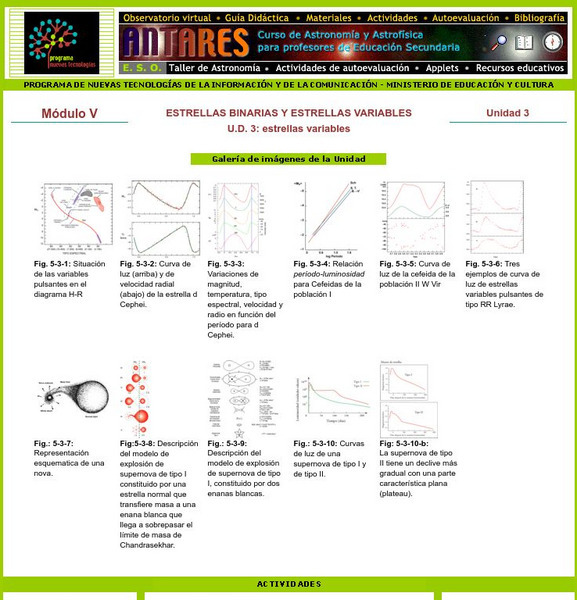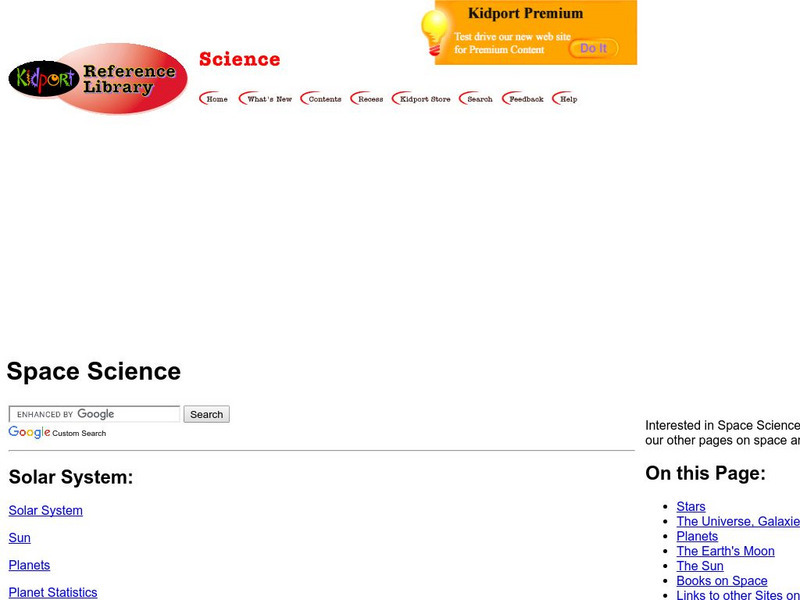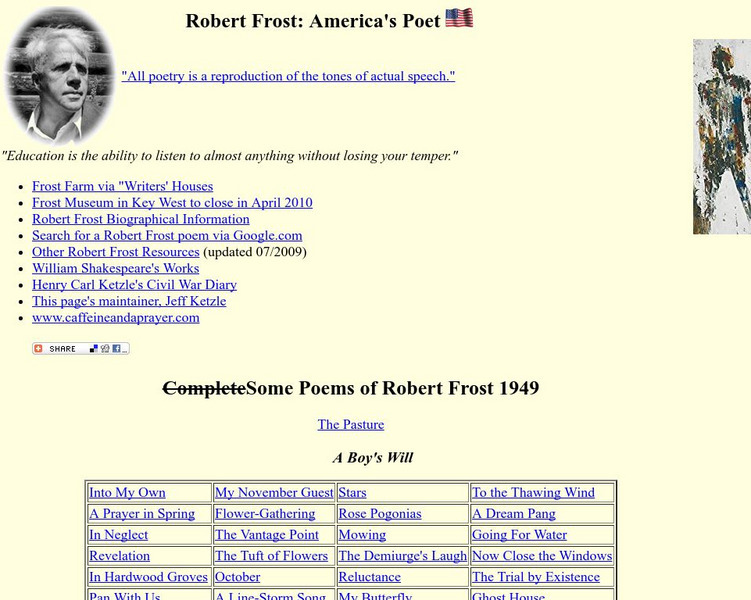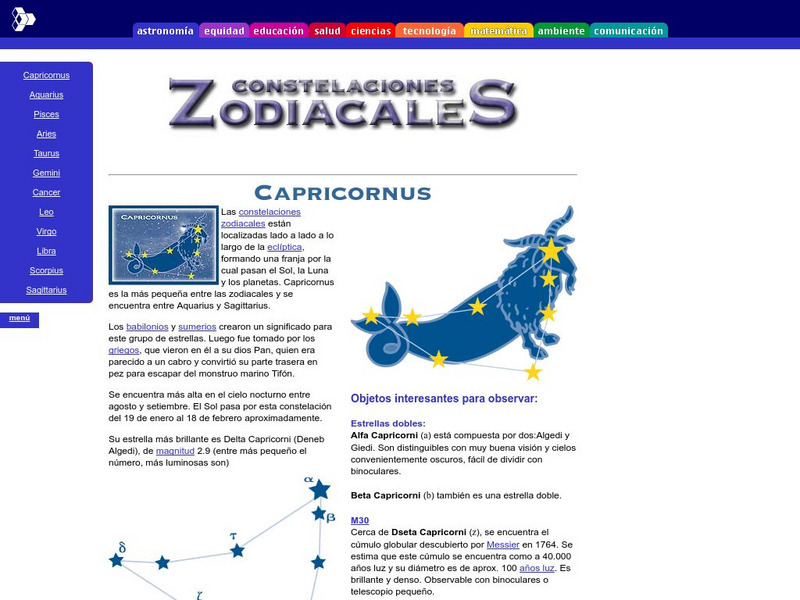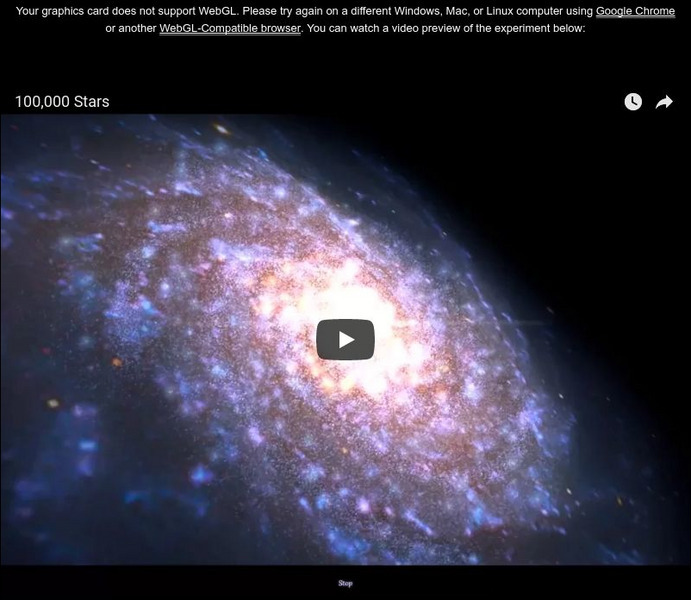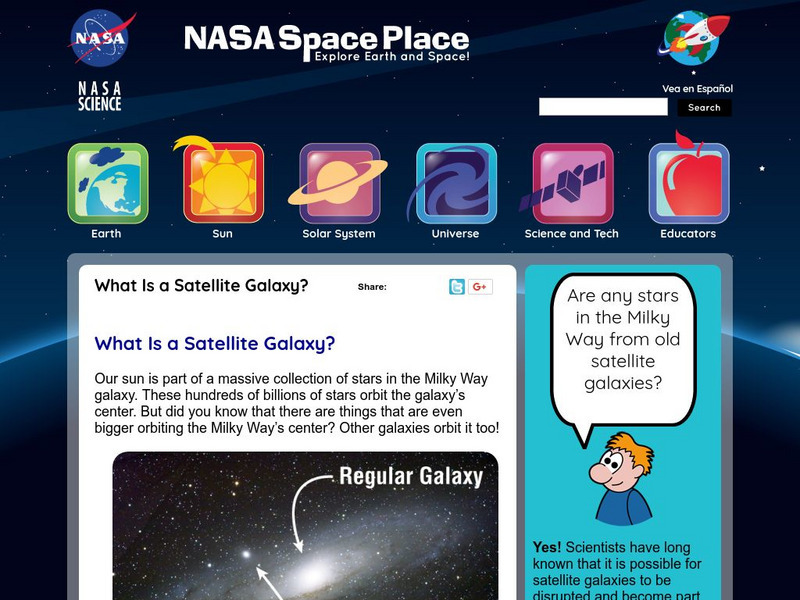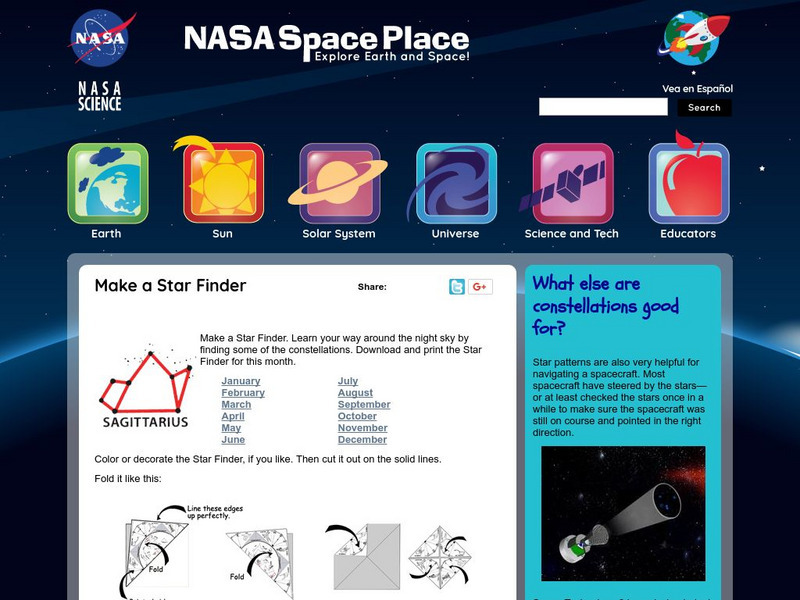Hi, what do you want to do?
Ministerio de Educación (Spain)
Ministerio De Educacion: Evolucion Estelar Modulo Iii Unidad 1
In this module you will study the birth, life and death of stars.
Ministerio de Educación (Spain)
Ministerio De Educacion: Fases Finales De La Estrellas Modulo Iii Unidad 2
In this unit you will learn about the final stages of the life of massive stars.
Ministerio de Educación (Spain)
Ministerio De Educacion: Fuentes De Energia Estelar Modulo Iii Unidad 3
In this unit you will learn about stellar energy sources .
Ministerio de Educación (Spain)
Ministerio De Educacion: Una Estrella Llamada Sol Modulo Iv Unidad 1
In this module you will study the structure and composition of the star closest to us: the Sun.
Ministerio de Educación (Spain)
Ministerio De Educacion: Estrellas Binarias Modulo v Unidad 1
In this module you will learn the different types of binary stars.
Ministerio de Educación (Spain)
Ministerio De Educacion: Estrellas Variables Modulo v Unidad 3
In this module you will learn about variable stars. Here you will find a large gallery of images.
Kidport
Kidport: Space Science
This complete resource will help students to improve their understand of space exploration. Includes images of the universe, galaxies, stars and planets.
Ministerio de Educación (Spain)
Observaciones Y Modelos en Astronomia
How does the length of the day change? How does the height of the sun change? Do we always see the same star? The answer to these questions and different observations about the sun, the moon and the stars that we can do from earth can be...
Ministerio de Educación (Spain)
Ministerio De Educacion: Astronomia Para Ninas Y Ninos
Learn basic astronomy and travel through space. After you finish the lessons you can take the evaluation to obtain the clues needed to play the fun space games.
Other
Robert Frost: America's Poet
This site provides many full text poems by Robert Frost. There are also multiple links for more information on Frost and his works.
TED Talks
Ted: Ted Ed: How Do We Study the Stars?
Yuan-Sen Ting takes us into deep space to show how astronomers study the stars beyond our reach. [4:46]
American Association of Physics Teachers
Com Padre Digital Library: Physics to Go: Explore Physics on Your Own
Contains a full physics curriculum with links to games, webcasts, and activities. By creating a free account, students and teachers can create their own personal collection of resources.
University of Michigan
American Verse Project: Flame and Shadow, by Sara Teasdale
Maintained by the University of Michigan's Humanities Text Initiative, this website offers the entire text of three of Teasdale's collection, "Flame and Shadow," is available through a series of links.
American Museum of Natural History
American Museum of Natural History: O Logy: Stuff to Do: Stargazing
Get started on the road to becoming an expert stargazer by following these recommendations for identifying stars, planets, and constellations. Includes an example of a journal that can be used as a record of your investigations.
Harvard University
Eyes on the Sky, Feet on the Ground: The Earth's Rotation
Plenty of cool activities about the Earth's rotation can be found here, such as tracing shadows, observing shadows during different times of the day, and tracking the sun's path in the sky to understand the rotation of the earth.
California Institute of Technology
Ipac: Iras Gallery
This site from IPAC is a series of images of various celestial objects and regions as viewed in infrared light. Each photo is accompanied by a caption.
Fundación Cientec
Fundacion Cientec: Constelaciones Zodiacales
This site provides detailed history and star cluster location information for each zodiac constellation. Also includes links (mostly to Wikipedia pages) to additional information for keywords that appear in the articles.
Bartleby
Bartleby.com: Robert Frost
The site provides background and texts of numerous poems. Follow the links at the bottom of the page to specific poetry books to find complete text of individual poems.
Scholastic
Scholastic: Study Jams! Science: Our Solar System: The Universe
A video and a short multiple-choice quiz on the Universe and what it is made up of.
E-learning for Kids
E Learning for Kids: Science: Antarctica/ What Are the Different Parts of the Universe?
In this lesson, students learn about objects in the universe, including constellations, planets, meteors, asteroids, and comets.
Other
Chrome Experiments: 100,000 Stars
Zoom in and out to explore our galaxy in this interactive 3D visualization of the stellar neighborhood, including over 100,000 nearby stars.
Australian Museum
Australian Museum: The Earth: The Universe
Basic information about the universe, its origin and composition. Also includes information about galaxies, stars, and the sun.
NASA
Nasa: Space Place: What Is a Satellite Galaxy?
Find out about the behavior and characteristics of the many satellite galaxies that orbit other galaxies.
NASA
Nasa: Make a Star Finder
Learning game and activity that teaches about the constellations by making a star finder to help locate them.










